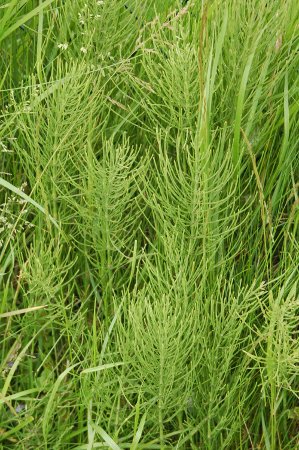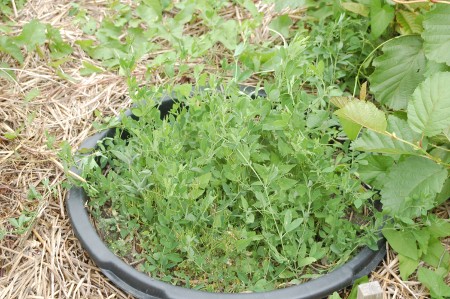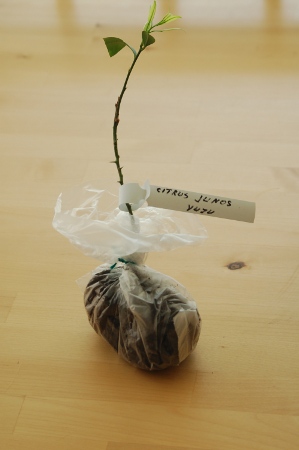
I always find I have nothing in common with the management of our community garden complex. They are as far from organic minded as you can get, and they have no sympathy for organic gardeners either. At the same time, they think I have an interesting garden, and recognize me as an experienced gardener, so they always seem to have lots of questions for me that I just can’t answer or mostly just really don’t care.
At the moment everyone’s attention is focused on Horsetail. It’s really everywhere right now. Everyone’s garden is full of it, as well as all the untended open space around the gardens. It’s everywhere that is, except in my garden. I don’t have a sign of it anywhere. Every once in a while it pops up somewhere in my garden, but then goes away on it’s own.
The cause of horsetail is pretty clear. Anywhere you spray with Roundup, you get a serious infestation. Everywhere else the surrounding plants out compete it, and it goes away. Horsetail likes very poor soil, which is how most fellow gardeners do their gardens, with as poor soil as possible, then added fertilizer and other chemicals as needed. Fertile soil promotes weeds, don’t ya know…
So now it’s this urgent problem! Everyone wants to know why I don’t have the problem, and what they can do to solve the problem so they can keep using Roundup. The more serious gardeners have switched to more expensive and toxic weed killers, but other gardeners are too thrifty for this and don’t want to spend the extra money.
The other urgent issue is whenever I have canola/rape weeds in my garden, because I guess those all have the Roundup ready gene by now in our area, and they want to make sure I pull them out as soon as possible before they go to seed! What they don’t know is these are really mustard weeds…
Anyone have any ideas for explaining to my fellow gardeners that I just don’t care what kinds of special weed problems they have after using Roundup?
Anyone with an established organic garden have problems with horsetail? Anyone with an organic garden have problems with other Roundup ‘superweeds’?




